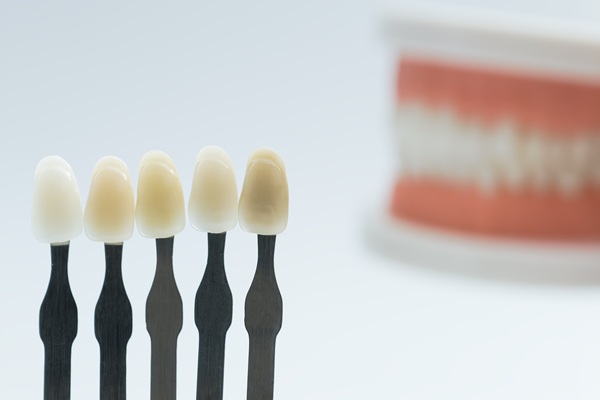When to seek treatment for an abscess
A tooth is said to be abscessed when a pocket of pus forms due to a bacterial infection. Patients who exhibit symptoms of an abscess should see a dental professional.
Abscess symptoms
People experiencing swelling of the face and fever or difficulty breathing or swallowing should seek immediate medical treatment at a general dentist's office or emergency room. If these symptoms are not present but other symptoms are, the patient should schedule an appointment with a dentist:
- Toothache with severe, lasting, and throbbing pain that may radiate to the neck, ear, or jawbone
- The abrupt occurrence of foul-smelling and -tasting salty fluid in the mouth that may be accompanied by pain relief
- Sensitivity to heat and cold
- Lymph nodes under the jaw or in the neck becoming tender and swollen
- Painful chewing or biting
Potential consequences of not receiving treatment for a dental abscess
Tooth abscesses will not resolve without treatment. The pain may be temporarily relieved if the abscess ruptures, but treatment is still necessary to avoid potential reoccurrence or spread of the infection. It is possible for the infection that causes an abscess to spread throughout the body, causing sepsis, which can be a life-threatening condition. The risk of sepsis is higher for people with weakened or suppressed immune systems.
How to avoid a dental abscess
Abscesses are caused by bacteria growth in the pulp of the teeth. When a tooth has a cavity, chip, or crack, bacteria can enter the inside of the tooth, where the nerves, blood vessels, and connective tissue is found. People who eat a diet high in sugar, experience frequent dry mouth, or have poor dental hygiene habits are at higher risk for dental abscesses.
Regular dental care
The key to preventing a dental abscess is to lower the risk of tooth decay. One of the most effective means of accomplishing this is to visit a general dentist regularly for exams and cleanings.
Fluoride products
Regular use of fluoride products can be beneficial. Potential options include drinking fluoridated water, using a fluoride mouth rinse, and brushing with a fluoride toothpaste.
Good oral hygiene
Dentists recommend brushing the teeth twice a day, replacing the toothbrush every three to four months, and flossing daily. Dentists often make oral hygiene recommendations as part of regular dental exams.
Diet modification
Dietary changes can be helpful for some people. It is recommended to eat a healthy diet that is low in sugar and to eat fewer snacks between meals.
Conclusion
Taking steps to prevent tooth decay can help many people avoid the potential complications of a dental abscess. However, because an untreated abscess can pose serious health risks, anyone who has associated symptoms should seek prompt treatment from a general dentist or medical professional.
Request an appointment or call Miami Implant & Family Dentists at 305-230-4040 for an appointment in our Miami office.
Recent Posts
General dentistry commonly handles toothaches among other dental concerns. While this is a routine issue that is easily treatable, it is common for patients to have several questions about it and what they should do if they experience it. Here we will answer some commonly asked general dentistry questions and advice on the best ways…
Seeing a general dentist for regular checkups should be part of your dental care routine. This dental professional can help maintain and even improve your teeth and gum health. Asking the right questions can help you know more about proper oral care. Below are some of the questions you can ask your general dentist during…
A general dentist will tell you all of the benefits of flossing on a regular basis. Flossing should be a very important part of your daily oral hygiene routine. Brushing your teeth is the first round of defense in fighting tooth decay but do not underestimate the value of flossing. When you get into the habit…


